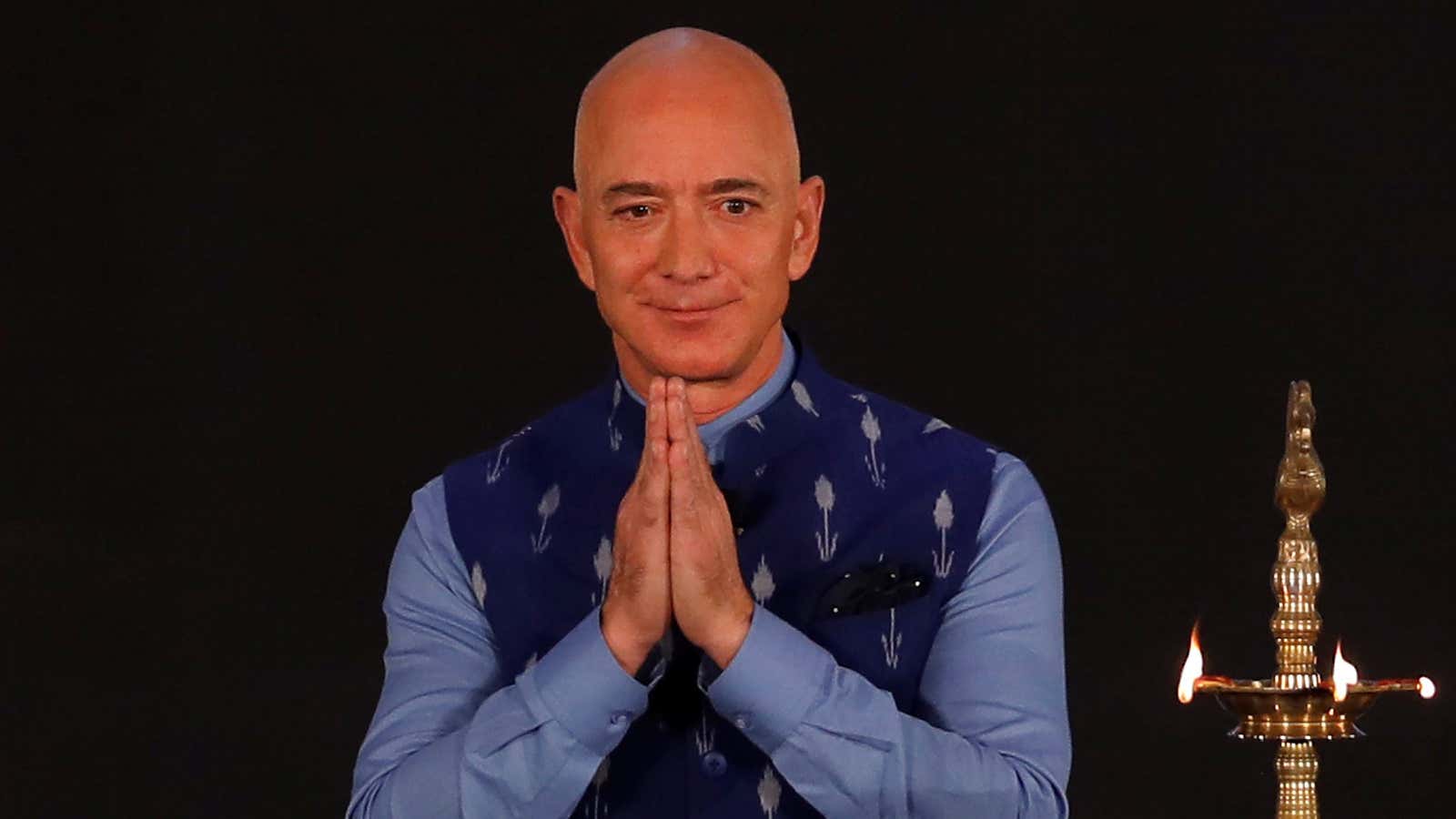The world’s richest man “surprised” Indians this week. On Jan. 15, Jeff Bezos made an unannounced appearance at an Amazon event in Delhi, where he said the company would invest $1 billion in India over the next five years, bringing millions of small and midsize local businesses online. The collective reaction? Not now, Jeff.
Bezos’ visit seemed mishandled from the start. At the Amazon event, his arrival delayed a keynote speech from NR Narayana Murthy, founder of Infosys, India’s second-largest IT services company. Murthy ultimately had to cut down his remarks to five minutes from 20. “I am not used to such delays,” he remarked wryly.
The central government also appeared nonplussed. Bezos’ trip has included no meetings with ministers or top government officials—many of whom are preparing for upcoming Assembly elections in Delhi—and prime minister Narendra Modi reportedly refused to meet the Amazon founder. On Monday, India’s antitrust regulator opened a formal investigation into the practices of Amazon and rival Flipkart, and local retailers protested Bezos’ visit, holding signs with slogans like “Amazon go back” and “Amazon–Flipkart: Second version of the East India Company.”
The government’s reticence may be a rebuke of the Bezos-owned Washington Post, which has criticized Modi for scrapping the special status for Jammu and Kashmir, as well as for India’s new citizenship law. But the administration may also not want to upset small traders in Delhi—the traditional voter base of Modi’s Bharatiya Janata Party—by appearing friendly with Bezos just weeks ahead of elections in the capital.
“They may have put in a billion dollars,” Indian trade minister Piyush Goyal said at a security conference this week. “But then if they make a loss of a billion dollars every year, then they jolly well have to finance that billion dollars. So it’s not as if they are doing a great favor to India when they invest a billion dollars.”
This essay was originally published in the weekend edition of the Quartz Daily Brief newsletter. Sign up for it here.
